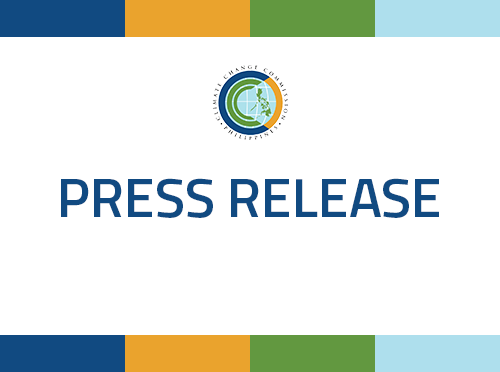
October 12, 2020 Monday

MANILA, 13 October 2020 — In observance today of the International Day for Disaster Risk Reduction, the Climate Change Commission (CCC) cited the report entitled “Human Cost of Disasters: An overview of the last 20 years 2000-2019” published by the UN Office of Disaster Risk Reduction (UNDRR) and Centre for Research on the Epidemiology of Disasters (CRED) which found that both the number of disaster events linked to natural hazards, and related economic losses had almost doubled from the previous period. From 2000 to 2019, 7,348 disaster events were recorded worldwide by EM-DAT leading to approximately US$2.97 trillion in economic losses, up from 4,212 disasters worldwide with economic losses totaling US$ 1.63 trillion for the period 1980 to 1999.
The Philippines was ranked fourth in terms of countries with the most number of disaster events (304 events), next only to China (577 events), the United States (467), and India (321) among the countries most affected globally.
The CCC urged government agencies, civil society, environment activists, and experts to anchor national and local climate change adaptation and disaster risk reduction strategies and policies on science to effectively reduce levels of and avoid the creation of new risk of disasters.
Hazards are occurring physical phenomena caused by either the rapid or slow onset of events having atmospheric, geologic, and hydrologic origins on solar, global, regional, national or local scales. Disasters often follow natural hazards which can be associated with having insufficient capacity or measures to reduce the potentially negative consequences of the hazard.
The International Day for Disaster Risk Reduction was first declared in 1989, after a call by the United Nations General Assembly for a day to promote a global culture of risk-awareness and disaster reduction. Held every 13th of October, the day recognizes how people and communities around the world are reducing exposure to disasters, raising awareness about the importance of reining in these risks, and promoting the culture of becoming climate-friendly to reduce the chances of environmental disasters.
The event is also an opportunity to acknowledge the progress being made toward reducing disaster risk and losses in lives, livelihoods, and health in line with the Sendai Framework for Disaster Risk Reduction 2015-2030 adopted at the Third UN World Conference on Disaster Risk Reduction in Japan in March 2015.
The Sendai Framework has seven strategic targets and 38 indicators for measuring progress on reducing disaster risk and losses. These indicators align the implementation of the Sendai Framework with the implementation of the SDGs and the Paris Agreement on climate change.
In 2016, the UN Secretary-General launched “The Sendai Seven Campaign” to promote each of the seven targets over seven years. The target for the year 2020 is Target E which is “Substantially increase the number of countries with national and local disaster risk reduction strategies by 2020” which lays the foundation for the implementation of the Sendai Framework and is closely linked with Priority for Action 2: “Strengthening disaster risk governance to manage disaster risk.”
The CCC said that this year’s target is about conveying the message that many disasters can be avoided or prevented if all of the local government units fully understand and appreciate the risk and vulnerability that prevails in their communities, and let science inform their local plans of action and ensure that investments build local resilience.
The Commission reiterated its call for the integration of the Sendai Framework in the local plans and programs for DRR to contribute to the achievement of not only target E, but of all the following seven global targets: (A) reduce disaster mortality; (B) reduce the number of affected people; (C) reduce direct economic loss in relation to global GDP; (D) reduce disaster damage to critical infrastructure and disruption of basic services; (E) increase the number of countries with national and local DRR strategies; (F) enhance international cooperation to developing countries; and (G) increase the availability of and access to multi-hazard early warning systems and DRR information assessments.
The climate body also said that engaging civil society, environment activists, and experts in policymaking processes, especially to understand autonomous adaptation and the interplay of informal and formal institutions play an important role in strengthening public decision-making.
As countries around the globe face economic setback from the COVID-19 pandemic, which has a direct relation to the disturbance and loss of ecosystems further exacerbated by the worsening climate, the CCC believes that climate-resilient and disaster-ready communities should be the top priority of governments worldwide to ensure that humankind will continue to survive and thrive.